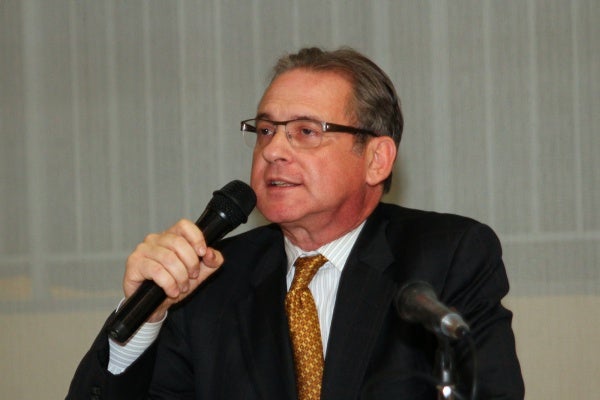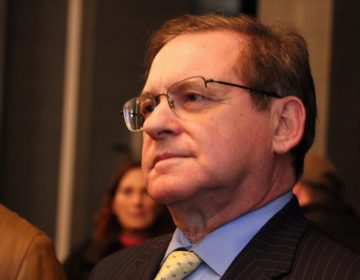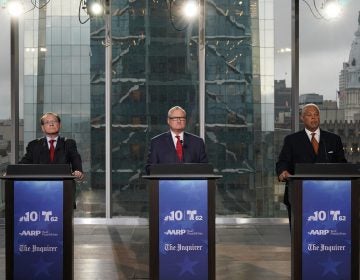Butkovitz to challenge Philly Mayor Kenney in 2020

Former Philadelphia City Controller Alan Butkovitz plans to challenge Mayor Jim Kenney. (Jana Shea for WHYY, file)
It’s official: Philadelphia Mayor Jim Kenney won’t get a free pass to re-election next year.
Former City Controller Alan Butkovitz announced his intention to run for mayor Wednesday, charging that under Kenney, Philadelphia has “fallen off the mark of being a great city.”
Butkovitz claimed Kenney has failed to address the issues of poverty, crime, education, jobs, and sound fiscal management.
“The spectacle of the city trying to track down $27 million in payroll account funds made this city a national laughingstock,” Butkovitz continued.
Earlier this year, the city hired an accounting firm in an effort to determine why the city’s main bank account seems to have millions less than it should.
Butkovitz also criticized one of Kenney’s signature achievements, a sweetened-beverage tax enacted to fund expanded pre-K and investments in the city’s parks, libraries and recreation centers.
The tax drives retail business out of the city and threatens grocery stores that have invested in Philadelphia neighborhoods, the former controller said.
Lauren Hitt, a spokeswoman for Kenney’s re-election campaign, said in a statement that “Mayor Kenney is making the bold decisions and tough choices needed to move the city forward.”
“Philadelphians want a progressive leader who will stand up to the rich and powerful — not a corporate Democrat running to help billionaire soda CEOs,” Hitt said.
Tough climb
In taking on an incumbent mayor, Butkovitz will be bucking a powerful historical trend.
Mayors in Philadelphia are limited to two four-year terms. And, since the current city charter was adopted in 1951, no mayor has been defeated in a re-election campaign.
Butkovitz has the advantage of having served as a citywide elected official for 12 years and having won six citywide elections — primary and general elections in 2005, 2009, and 2013.
But those elections are less costly, generally lower-turnout affairs than mayoral races.
Butkovitz lost the controller’s post last year when first-time candidate Rebecca Rhynhart rode a wave of younger voters to a convincing win in the Democratic primary.
There’s also the challenge of raising money.
Successful mayoral campaigns have war chests in the millions of dollars, and city law limits campaign contributions to $3,000 from an individual and $11,900 from a political committee or business partnership.
Soda companies may be willing to invest in defeating Kenney, but the contribution limits could mean they’ll have to form their own independent expenditure committee if they want to put large sums of money into the race.
Butkovitz’s campaign committee, Friends of Alan Butkovitz, showed $18,625 on hand at the beginning of the year in its most recent campaign finance report.
Kenney’s campaign fund had $435,926 as of Sept. 25 in its most recent report.
State Sen. Anthony Hardy Williams, who lost to Kenney in the 2015 Democratic mayoral primary, has said he’s also considering a run for mayor.
Candidates for mayor must file by March 12 of next year, and the primary election is May 21.
WHYY is your source for fact-based, in-depth journalism and information. As a nonprofit organization, we rely on financial support from readers like you. Please give today.





